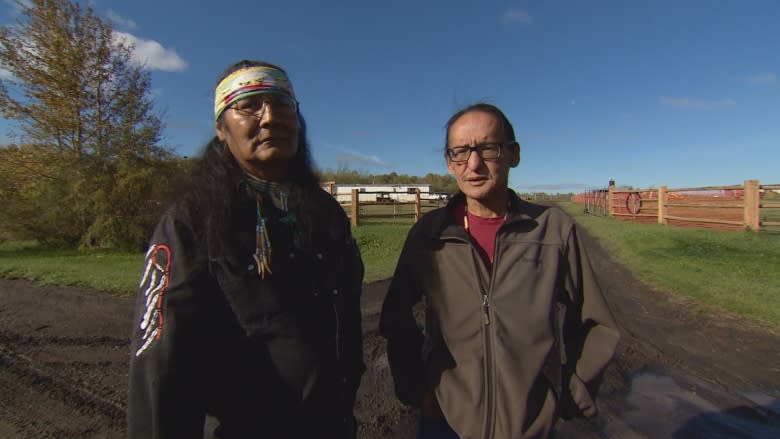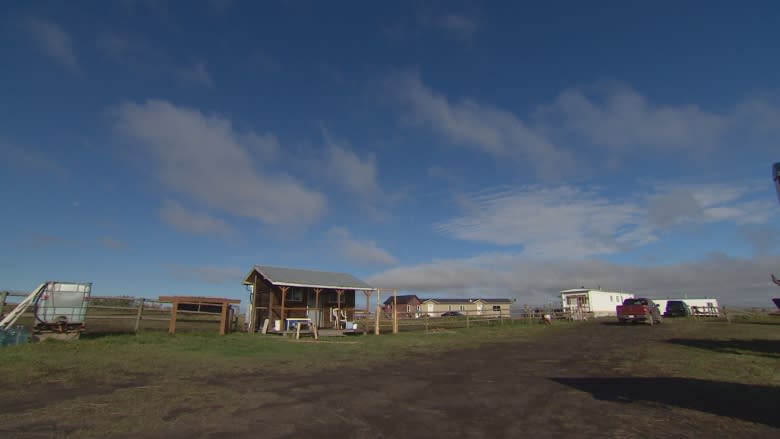Financially struggling Alexander First Nation residents disturbed by controversial audit
Life is not easy for Dorothy Powder and her husband on the Alexander First Nation reserve, where they have been waiting for power poles for six years.
The couple fetches water a mile up the road in heavy jugs, chops wood for heat, cooks canned food on their camp stove and takes sponge baths. Powder, 59, recently underwent a hernia operation from all the heavy lifting.
"We have to do it the old style way we used to do it in the old days," she said, adding she's been told repeatedly by the past three chiefs and councils there is no money to extend the power lines.
"But we saw all the money," said Powder. "The proof is right there. They have enough money."
On Aug 4, Dorothy attended a band membership meeting where accountants presented a scathing report identifying $2.1 million in "unexplained payments" between 2013 and 2015 to a former band chief Herbert Arcand and seven administrative staff. Arcand and another senior administrator have denied the allegations.
The financial investigation was conducted at the request of four councillors and the current Chief Kurt Burnstick, who is embroiled in another controversy after being charged with sexual assault, which he denies.
Brent Burnstick, the chief's brother, said while questions have been raised about spending, some families like his continue to live in mouldy homes.
"It's very bad," said Brent Burnstick, adding he is concerned about the health of his six children. "As soon as you walk in you can smell it. Especially when it's cold. When it's cold — boom — the spores come out."
He said public works staff have visited his home and filled out forms to be sent to the federal government. "But the funds have never come to our home," he lamented.
Brent Burnstick and resident Ernie Bruno said they have been trying to draw attention to problems with the band's financial activities for decades. Recently, they have been distributing the document presented to council summarizing the audit's findings within the community.
"Something has to be done with INAC (Indigenous and Northern Affairs Canada), with the federal government," said Bruno. "It has to be more open, more transparent."
@andreahuncar andrea.huncar@cbc.ca



